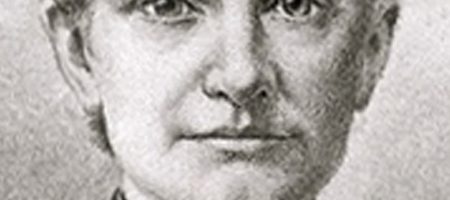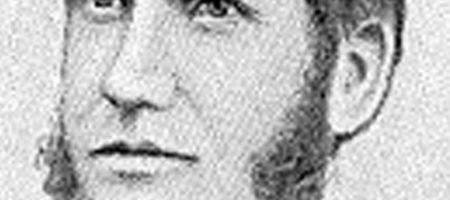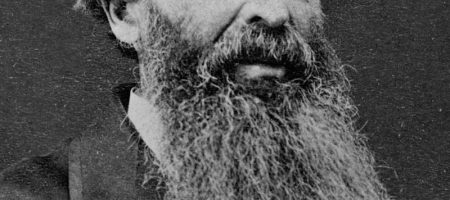Andrew Rogers April 1846
TSHIMAKAIN
April 22, 1846.
Miss Prentiss:
An apology is due in my attempting to write to you, being an entire stranger, although I feel almost as though I had been well acquainted with you for years, having become so much attached to Mrs. Whitman.
Some days before I left Dr. Whitman’s for this place, Mrs. Whitman was speaking of having a great number of letters to write to the States, and in her pleasant way wished to know if I would not write some for her. To which I replied, I would rather engage her to write for me, as she could do it so much better; but said, finally, that I would write one to any of her friends, if she would do the same for me.
To this she agreed and gave me her name. I desired her to write to my mother, who is living near Monmouth, Warren county, Illinois, where I have been living for the last ten years before the spring of ’45, at which time I left home with the desire of seeing the far West.
As I learned from Mrs. Whitman that you and your brother had some thought of coming to this country, you will doubtless feel more or less interested in some of the difficulties and trials that one has to encounter on the way. One of the greatest trials that a religious mind has to encounter on the way is the company one is often compelled to travel with. There is no place where one can better see all the varieties of civilized life than here. You can see from the highest to the lowest grade. You may see all these at home, it is true, but you can’t see them all brought so closely together, and under so many vicissitudes of life as have to be passed through on the way-hunger and thirst and fatigue, cold and wet weather. Now you have bad roads and no grass for your cattle; now, perhaps, some one will tell you there is much danger from Indians. After traveling all day through dust that is almost insupportable, you will come into camp at 9 or 10 o’clock at night and feel almost as though you did not care whether scalped before morning or not. And to make the trouble greater the cattle have almost nothing to eat, and may be you have no water within a mile, and perhaps no wood. Under such circumstances who is there among the sons of men that would not be likely to feel somewhat peevish, so much so that almost anything would throw him off his balance, and be likely go to beyond the bounds of propriety. Sure I am that nothing but “much of the mind of Christ,” will support one under such trials. You must not think that the whole journey is just such as I have described. By no means. I have given you about as dark a picture as is likely to be met with on the road. But I must confess that I endured more fatigue during the six months we were on the way than I had ever before undergone in the same length of time. No one need think that it is like traveling in the stage or on the steamboat; yet one is not often vexed with high prices, nor are they in danger of being robbed as they are on steamboat.
One is not likely to spend a great deal by the way, without he does it in gambling, which he may do here as well as any where if he wished, as it is almost always the case that some one was thoughtful enough to bring a deck of cards with him; and if they have none of them, they bet on the distance to some hill, or on the distance traveled during the day, or that my oxen can draw more than yours.
Another trial that one has often to meet on the way is disregard for the Sabbath. I suppose there was about as much contention arose on that subject in the company in which I came as any another. A good part of the company cared nothing about that, or any other religious question, and if it suited them they wished to travel on that day as well as any other. And even when they did stop on that day it was only to mend their wagons, or wash their clothes. I do not say that all did so, for there were some of the company that were devotedly pious. There were three ministers in the company, one a Seceder minister from about Burlington. The other two were Baptist ministers, one from Iowa, the other from Rock Island county, Ill., whose name was Fisher, and who was formerly of Quincy, and is doubtless well known there. He manifested more of the true spirit of Christ while on the road than any other man with whom I was acquainted. Sometimes one is compelled to travel on the Sabbath, even if the company were willing to stop, as it happens that pasture cannot be found in sufficient quantities, though this does not often occur, but it often made a plea for traveling on that day when there would be plenty if they wished to stop to hunt buffalo. The company in which I came, traveled, may be, half the Sabbaths on the way. We had preaching most of the days on which we stopped. But I am dwelling too long on this subject, perhaps.
I desire to say to you, if you have any influence with respect to this country, I hope you will use it in endeavoring to have it settled with pious Yankees. Although not one myself, yet, as western people say, “I have a mighty liking for them.” I do hope that it may be another New England, and I would to God that the mothers of this country could only be from Yankee land. Perhaps I have said more than I ought, but such are the sentiments of my heart, and I have ventured to express them. Let me but have the choice of the mothers of any country, and I will feel well satisfied as to the destiny of that country, either as to its moral, literary or civil aspect. But the moral prospect of this country is not very encouraging at this time. The “man of sin” appears to be making considerable progress in the lower settlements. One thing that makes much in his favor is, he has the influence of the H.B. Company, though it is to be hoped that God will thwart his plans, and that He will “overturn, overturn till He come whose right it is to reign.” “Till the stone cut out of the mountain shall fill up the whole earth.” May God hasten it in His day, is my earnest desire and prayer.
It may be interesting to you to know any one with whom I have been formerly acquainted. Mr. Bacon used to be my preceptor in music, whom I suppose you have often seen. I would like much to be remembered to him, if he is living there.
I have, perhaps, said more now than you will think worth sending more than two thousand miles, but I must say in conclusion, that Dr. and Mrs. Whitman seem very near to me. It appeared almost like parting with my mother when I left there to come to this place (which you will find marked on the map of Oregon in the November number of the Missionary Herald.) I have spent many very pleasant hours in her company and hope to spend more ere life closes.
Should you ever receive this, a letter as long as you wish to write would be most acceptable. News from the States is always scarce at Tshimakain and Waiilatpu.
Your true friend,
ANDREW ROGERS, JR.




